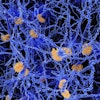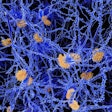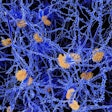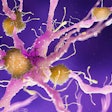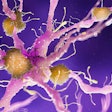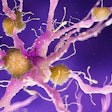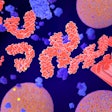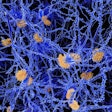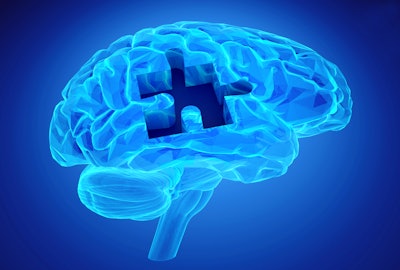
King’s College London researchers have developed a blood-based test that could be used to predict the risk of Alzheimer’s disease up to 3.5 years before clinical diagnosis. The study, published January 27 in Brain, indicates that human blood components can affect the formation of new brain cells, a process called neurogenesis.
Neurogenesis occurs in a part of the brain involved in learning and memory, called the hippocampus. While Alzheimer’s disease affects the formation of new brain cells in the hippocampus during the early stages of the disease, previous studies have only been able to study neurogenesis in its later stages, through autopsies.
To better understand the early changes, researchers collected blood samples over several years from 56 individuals with mild cognitive impairment. While not everyone experiencing this condition went on to develop Alzheimer’s disease, those who did progressed to a diagnosis at a much higher rate than others. Of the 56 participants in the study, 36 later received an Alzheimer’s diagnosis.
The researchers treated brain cells with blood taken from people with mild cognitive impairment, exploring how those brain cells changed in response to blood exposure as Alzheimer’s disease progressed.
The blood samples collected from participants who subsequently developed Alzheimer’s disease promoted a decrease in cell growth and division and an increase in apoptotic cell death -- the process by which cells are programmed to die. However, these blood samples also increased the conversion of immature brain cells to hippocampal neurons. While reasons for this increased neurogenesis remain unclear, the researchers hypothesize that it may be an early compensating mechanism for the neurodegeneration (loss of brain cells) experienced by those developing Alzheimer’s disease.
Previous studies showed that blood from young mice could have a rejuvenating effect on the cognition of older mice by improving hippocampal neurogenesis.
The researchers sought to model the neurogenesis process in a lab using human brain cells and human blood, in order to better understand neurogenesis and the prediction of Alzheimer’s disease. They found the first evidence in humans that the body’s circulatory system can affect the brain’s ability to form new cells. When the researchers used blood samples collected long before the participants’ Alzheimer’s disease diagnosis, they found that the neurogenesis changes occurred 3.5 years prior to clinical diagnosis.
The findings potentially allow noninvasive early prediction of Alzheimer’s onset, according to the researchers. This could complement other blood-based biomarkers that reflect classical signs of the disease, such as the accumulation of Alzheimer’s flagship proteins amyloid and tau.
The researchers said that their work may also help illuminate changes the brain undergoes at the earliest Alzheimer’s disease stages, potentially leading to earlier detection and interventions such as identifying individuals with memory problems who might benefit from clinical trials of disease-modifying Alzheimer’s drugs.
“It is now essential to validate these findings in a bigger and more diverse group of people,” said co-first author Dr. Hyunah Lee in a statement.



